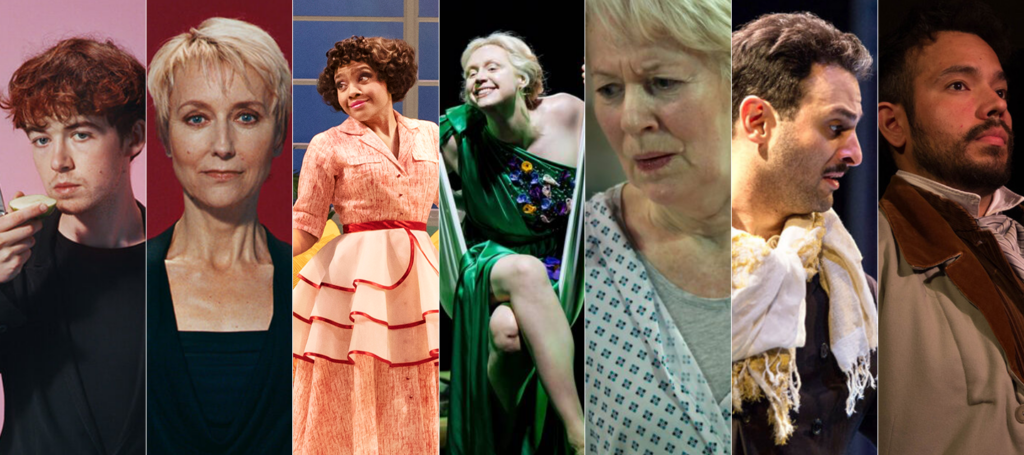


On Then and Now
Robert Icke is a Shakespeare purist, which is not to say that his actors will turn up in codpieces and rosettes, rapping pentameter over an underscore of viol and lute. In fact, it seems that he never bothers with ghosts of the Elizabethan past, but rather, distills the essence of the Bard’s works in the way Willy Shakes had always intended them to be: a mirror against the contemporary world where the audience resides – It lives on, past the lifespan of the author, and evolve as new generations of artists look through the glass, darkly, until everything is crystal clear.
It’s the only way to preserve them, the classics. We embrace the evolution they must endure through the tides of time: what was then, sedimented through time, remains essential, now.
While we fill ourselves with expectations for Icke’s much-lauded Hamlet and Oresteia running in rep at the Park Avenue Armory (Jun. 1 – Aug. 13), some other works that uphold the same ideas come to mind.
- The Skin of Our Teeth: Lincoln Centre Theatre, 2022
Lileana Blain-Cruz’s fresh take on Thornton Wilder’s WWII era classic, with additional new material by Branden Jacobs Jenkins, is a prime example of bridging historical contexts with modern sensibilities. For this production, the “here” and “now” where the play is set in, means 2022, Lincoln Center’s Vivian Beaumont Theater. The world-shattering disasters the characters have to endure, also become very much about the collective trauma we face today.
- A Midsummer Night’s Dream: London Bridge’s Theatre, Summer 2019
Having only seen it through NTLive recording, I couldn’t tell you how it might feel at this rambunctious production in person with all its chaotic glory. There was the Titania (Brienne of Tarth Gwendoline Christie at her most fab) and Oberon role swap, a Beyoncé song, and Bottom and his crew (The Rude Mechanicals) were re-skinned as Britain’s Got Talent contestants, complete with team sweatshirts.
- The Trojan Women: Gate Theatre, 2012
Caroline Bird’s adaptation of Euripides’ anti-war play puts the former Trojan queen Hecuba, her daughter-in-law Andromache, behind bars in a women’s prison, along with a pregnant “chorus” cuffed to a bed, whom the two royals treat with contempt. It’s a radical and poetic update of an ancient text that serves up an anatomy of privilege and hierarchy even in the face of ruins.
- Hamlet: Waterwell Theater, 2017
Set in the early 20th century Persia and produced at the heel of Trump’s “Muslim Ban 2.0” in 2017, this bilingual Hamlet was unique in its recontextualization of a text into a drastically different culture while maintaining all of its integrity and relevance. A conflict between powers becomes more specifically cultural: the Persian royal court in the production was depicted as increasingly westernized, where everyone spoke English, and Fortinbras looked the picture of a colonizer.
- Uncle Abram – The Eagle Project, 2017
Anton Chekhov has always included preservation as an important subject matter in his plays, but here we center it, where the artists at The Engle Project accessed a classic Russian drama from an indigenous perspective. Produced in the wake of the fight at Standing Rock, Uncle Abram was a reconstructed, uniquely American take on Uncle Vanya that was borne out of the specific time we lived in.
Honorable mentions:
- An Iliad, Lisa Peterson and Denis O’Hare created this gem of a play by re-constructing Homer’s Iliad (Robert Fagles’ translation) but also grounding the performance into present-day by incorporating information about contemporary warfare
- Theater of War Productions (conceived by Bryan Doerries) has been bringing Greek Tragedies into specific communities where certain texts might resonate in unique ways. For instance, Prometheus Bound was used to shed light on the issues of solitary confinement in the American prison systems, and Antigone in Ferguson directly reflected on Michael Brown’s murder by the police in 2014
- Mourning Becomes Elektra, by Target Margin Theater, which was David Herskovits’ take on Eugene O’neill’s take on Aeschylus’ Oresteia.
There is no shortage of examples where theatre artists have successfully updated a text from “then” into “now”, in order to address issues that are close to home. In Hamlet, the tragedies are multiplied because privileged and emotionally disturbed young men had access to lethal power, which is something deeply and urgently relevant today. Because it’s all happening, right before our eyes: something ancient, effortlessly renewed, by the very nature that is live theatre.
And to borrow a sentence from Vogue’s Grace Coddington: maybe we’ll see – finally, through the glass, a little bit less darkly.
Keep Reading

Who Should be Nominated for the 75th Tony Awards?
With another Broadway season coming to an end, it means Tony Awards season has arrived. Our critic cohort got together to talk about who they hope Tony nominators will remember when they’re filling their ballots. Technical Category Christian Lewis: Dede Ayite’s work in Costume Design this season was so great! Other people I’m really […]
Read More
A Sleek ‘Macbeth’ Sacrifices Clarity for Innovation
Witches be cooking. In the 1600s, King James I of England blamed everything, including his mother’s death, on witchcraft. So he commissioned Shakespeare and Co. to put up a smear campaign against witches, the Bard answered the call by premiering The Tragedie of Macbeth for their main benefactor, the King himself, in 1606. Theater was […]
Read More












